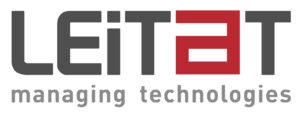RTC CELmAb
RTC CELmAb
Abstract:
Background:
Detection of autoantibodies in the clinical laboratory has been a powerful tool widely used in the diagnosis and follow up of in autoimmune diseases, like celiac disease (CD). These diseases are known for the presence of antibodies in the patient serum that are directed against one’s own structures or proteins. In CD, these autoantibodies react with tissue transglutaminase and their presence is considered are as a CD diagnostic marker. Unlike what is observed in other much more characterized analytes, autoantibody determination shows a high degree of variability in the results, mainly due to the analyte complexity, since the autoantibodies are distinct in each patient and recognize a different region (epitope) in the target protein.
This situation reduces the reliability of the determination, affecting the diagnostic capacity of the test. This is even more significant in the case of the celiac disease and the anti-transglutaminase antibodies, because most of the patients are children who, depending on the result of the test, have to go through a confirmatory intestinal biopsy. Facing such a lack of standardization, there are two options to reduce the dispersion of results and improve the diagnostic capacity: to refer the results to an International Reference Method, by comparing and correcting the results, or to use a Certified Reference Material to calibrate our assay. Unfortunately, there are neither an International Reference Method nor a Certified Reference Material for the anti-transglutaminase antibody determination.
To face the complexity of the determination of anti-transglutaminase autoantibodies in CD and reduce variability, this project proposes the availability of a Reference Material that will contribute to normalize the results obtained from different laboratories, in different moments and using tests provided by different manufacturers.
Objectives:
The main objective is the development and preparation of a Reference Material for the determination of anti-tissue transglutaminase antibodies in patients with celiac disease, with the aim of contributing to the improvement of diagnosis and management of this disease, which holds an extended social impact and a high incidence in childhood.
For the achievement of this objectives, there are things to be considered:
– The reference material must have a long shelf life and be independent of the variations due to the changing origin of the critical raw materials required. It should share the same molecular nature as the native analyte present in patients sera. Therefore, the monoclonal antibody generated in this project will have human molecular characteristics.
– The starting material will be human B cells from active celiac patients to generate libraries of specific antibodies to be expressed in CHO cells. For this, we count on the developed technology and the expertise of both, Leitat and the Immunology Department of Hospital Marqués de Valdecilla.
– The antibody generated should be integrated in a protein matrix that will form the lyophilized reference material. For the design and development of that matrix and of the preparation and lyophilization process, we count on the expertise and the facilities of BioSystems.
While the availability of that reference material will probably not completely eliminate the analytic variability, it will for sure significantly contribute to reduce the differences among the results obtained in different laboratories, and, thus, to the improvement of the diagnosis and management of celiac disease.
Project Budget: 719.928,15€
LEITAT Budget: 168.276,20€
Financial Framework: RTC
Contract number: RTC2019-007324-1
Start Date: 01/07/2020
End Date: 30/06/2023
Contact Manager: Iván Ortiz
Partners: (BioSystems Coordinator)



Proyecto RTC2019- 007324-1 financiado por:


